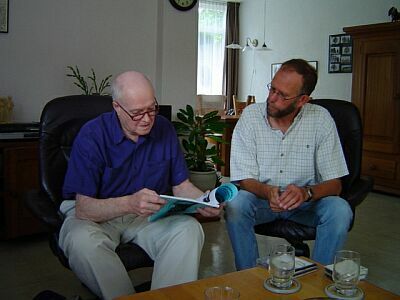 On October the 14th it has been 26 years since the passing way of the great Argentine musician, showman and fabulous guitarist, Oscar Alemán (1909-1980). To remember his legacy to the world, I have done a little research regarding some of the Brasilian tunes he recorded. The list of Alemán's Brasilian repertoire is longer than the few tunes in focus here, but the following considerations may reach for a start.
On October the 14th it has been 26 years since the passing way of the great Argentine musician, showman and fabulous guitarist, Oscar Alemán (1909-1980). To remember his legacy to the world, I have done a little research regarding some of the Brasilian tunes he recorded. The list of Alemán's Brasilian repertoire is longer than the few tunes in focus here, but the following considerations may reach for a start.
In interviews Alemán always held Brasilian music in high esteem and throughout his career he insisted on performing his Brasilian repertoire in a way as intended by the composers - he would not change the 'spirit' of the music by 'jazzing it up' or changing the structure of a tune. This may be heard by comparing Alemán's renditions of some of the Brasilian tunes he recorded with renditions by Brasilian performers from the same time.
The first recorded Brasilian tune by Oscar Alemán y sy Quinteto de Swing was NEGRA DE CABELLO DURO (Rubens Soares - David Nasser) - Batuque (7 Sep. 1943), which started the first session by his re-organized quintet in 1943. This tune - a Brasilian batucada - was also recorded the previous year by the highly popular Brasilian vocal group, ANJOS DO INFERNO, who specialized in mixing Brasilian rhythms and American harmony in a kind of barbershop style a la Mills Brothers:
Autor: RUBENS SOARES-DAVID NASSER Título: NEGA DO CABELO DURO Gênero: BATUCADA Intérprete: ANJOS DO INFERNO Gravadora: COLUMBIA Número: 55.315-A Matriz: 478 Data lançamento: JAN/1942
Listening to the two versions of the tune it becomes clear that Alemán might have been inspired by the vocal arrangement of the tune by ANJOS DO INFERNO or a similar rendition, this also beeing the first full vocal statement recorded by Alemán, one of more examples documenting that his preferred singing language was Portuguese, not Spanish as would have been expected from an Argentine performer.
Later Alemán would record a couple of Brasilian tunes more also recorded by ANJOS DO INFERNO. In 1945 he recorded O VESTIDO DE BOLERO (Dorival Caymmi) - Baión (4 Dec. 1945) with his quintet, and in 1956 ACONTECE QUE EU SOY BAHIANO (Dorival Caymmi) - Samba (14 Sep. 1956). Both tunes are compositions by the highly estimated Dorival Caymmi, who wrote several popular Brasilian tunes in the samba-style. As said, the two mentioned tunes were also recorded by ANJOS DO INFERNO:
Autor: DORIVAL CAYMMI Título: VESTIDO DE BOLERO Gênero: SAMBA Intérprete: ANJOS DO INFERNO Gravadora: CONTINENTAL Número: 15.101-B Matriz: 675 Data gravação: 26.12.1943 Data lançamento: JAN/1944
-
Autor: DORIVAL CAYMMI Título: ACONTECE QUE EU SOU BAIANO Gênero: SAMBA Intérprete: ANJOS DO INFERNO Gravadora: CONTINENTAL Número: 15.101-A Matriz: 674 Data lançamento: JAN/1944
In 1944 Alemán and the quintet recorded YO VI UN LEON (Maia) - Samba (27 June 1944), another Brasilian tune sung in Portuguese by Oscar with backing vocal from the band. This tune also was recorded by a Brasilian vocal group, QUATRO ASES E UM CORINGA, that launched a big hit with EU VI UM LEAO:
Autor: LAURO MAIA Título: EU VI UM LEAO Gênero: BATUQUE Intérprete: QUATRO ASES E UM CORINGA Gravadora: ODEON Número: 12.160-A Matriz: 6943 Data gravação: 16.04.1942 Data lançamento: JUN/1942
If Alemán felt inspired from Brasilian tunes to add his own singing in Portuguese to the music , other Brasilian compositions would inspire him no less to show off some of his best guitar solos ever recorded. From the same session as the above mentioned NEGRA DE CABELLO DURO also was cut TICO TICO NO FUBA (Abreu) - Choro (7 Sep. 1943), the world famous hit by Zequinha Abreu, first recorded 1931 by the ORQUESTRA COLBAZ and later by numerous Brasilian as well as other performers. Among the Brasilian recordings of the tune I have heard the one by CAROLINA DE MENEZES & GAROTO is excellent and has great guitar work by Garoto, which may have inspired Alemán to do his best:
Autor: ZEQUINHA DE ABREU Título: TICO-TICO NO FUBA Gênero: CHORO Intérprete: CAROLINA CARDOSO DE MENEZES (PIANO) E GAROTO (VIOLAO) Gravadora: VICTOR Número: 80.0061-A Matriz: S-052694 Data gravação: 12.01.1943Data lançamento: MAR/1943
My favoured Brasilian tune by Alemán is his recording of DELICADO (Waldir Azevedo) - Baión (31 Oct. 1951), an incredible guitar solo paying tribute to the composer, Valdir Azevedo, who was a master of the cavaquinho and had a worldwide hit with this composition:
Autor: VALDIR AZEVEDO Título: DELICADO Gênero: BAIAO Intérprete: VALDIR AZEVEDO (CAVAQUINHO) E EU REGIONAL Gravadora: CONTINENTAL Número: 16.314-A Matriz: 2391 Data lançamento: NOV/1950
The above mentioned recordings by Alemán are all included in the Argentine EMI cd compilation 'Oscar Alemán con Ritmos de Brasil' (EMI 541686) from 2002. The Brasilian recordings are to be found using the online search facility at the IMS.
Discographical info on the Brasilian issues quoted above is supplied by consulting the Funarte database.
Additional info on Alemán's recordings to be found at the online discography here --
A small appendix to announce a new web site in Argentina devoted to Oscar Alemán to be reached clicking here
Jo

 This weblog will give you information about the "El Redescubrimiento de Oscar Aleman" project, the "Rediscovering of Oscar Aleman" project.
Oscar Aleman ( 1909 - 1980 )was an Argentinean jazz guitar player, entertainer and showman, born in Argentina, lived in Europe (1930s)and returned to Argentina ( 1940 - 1980 ).
He was one of the best jazz guitar players of his time.
This weblog will give you information about the "El Redescubrimiento de Oscar Aleman" project, the "Rediscovering of Oscar Aleman" project.
Oscar Aleman ( 1909 - 1980 )was an Argentinean jazz guitar player, entertainer and showman, born in Argentina, lived in Europe (1930s)and returned to Argentina ( 1940 - 1980 ).
He was one of the best jazz guitar players of his time.












